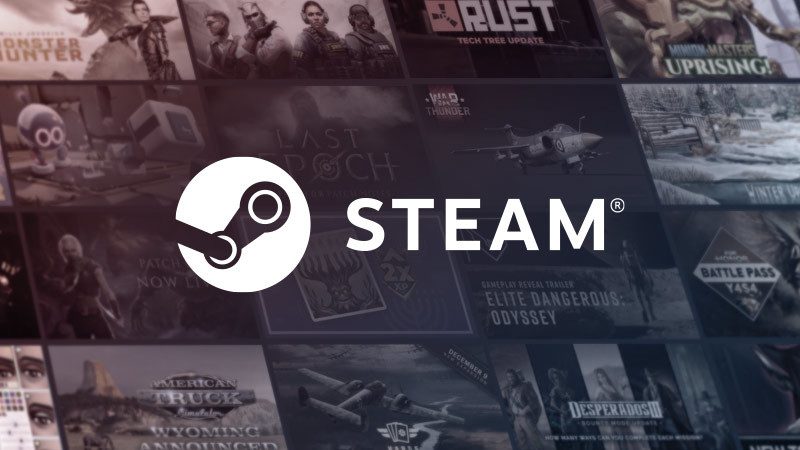
steam will wind down support for 32-bit Valve’s Steam client will cease support for 32-bit versions of Windows starting January 1, 2026, marking a significant shift as the gaming platform evolves with technological advancements.
steam will wind down support for 32-bit
Background on Steam and 32-bit Windows Support
Valve Corporation launched Steam in 2003 as a digital distribution platform for video games, allowing users to purchase, download, and play games directly on their computers. Over the years, Steam has grown to become one of the largest gaming platforms globally, boasting millions of active users and an extensive library of games. One of the key reasons for Steam’s success has been its compatibility with a wide range of operating systems, including various versions of Windows, macOS, and Linux.
However, as technology progresses, older systems become less viable for modern applications. The 32-bit versions of Windows, which were once prevalent, are gradually being phased out. Microsoft itself has shifted its focus to 64-bit operating systems, which can handle more memory and provide better performance for contemporary applications. This transition has led to a decline in the use of 32-bit systems, prompting Valve to reevaluate its support for these older versions.
Details of the Support Change
In a recent support note, Valve announced that it would officially end support for the Steam client on 32-bit versions of Windows on January 1, 2026. The company emphasized that while existing installations of the Steam client will continue to function on Windows 10 32-bit, they will no longer receive updates, including critical security updates. This decision reflects Valve’s commitment to maintaining a secure and efficient platform for its users.
Implications for Users
The discontinuation of support for 32-bit Windows systems carries several implications for users:
- No Updates: Users on 32-bit systems will not receive any updates, which means they will miss out on new features, improvements, and security patches. This lack of updates could expose users to vulnerabilities and performance issues.
- Technical Support Limitations: Valve has stated that Steam Support will be unable to assist users experiencing issues related to the outdated operating systems. This lack of support could leave users stranded if they encounter problems while using the Steam client.
- Uncertain Functionality: Valve has warned that it cannot guarantee the continued functionality of Steam on unsupported operating systems. This uncertainty could lead to a frustrating experience for users who rely on 32-bit systems.
Reasons Behind the Decision
Valve’s decision to discontinue support for 32-bit Windows systems is not arbitrary; it is rooted in several technical considerations. One of the primary reasons cited by Valve is the lack of support for essential system drivers and libraries on 32-bit versions of Windows. As the underlying technologies that power the Steam client evolve, they increasingly rely on components that are not compatible with 32-bit systems.
Impact of Underlying Technologies
The Steam client utilizes various technologies, including a Chromium-based built-in browser for web content and game streaming. As these technologies advance, they often drop support for older architectures, including 32-bit systems. For instance, Chromium, which powers the Steam browser, has been moving towards a 64-bit-only model, reflecting broader industry trends.
This shift is not unique to Steam; many software developers are phasing out support for 32-bit systems as they focus on optimizing their applications for 64-bit architectures. This trend is driven by the increasing demand for performance and security in modern software applications, which are better served by 64-bit systems.
Stakeholder Reactions
The announcement has elicited a range of reactions from stakeholders in the gaming community. Some users have expressed frustration, particularly those who rely on older hardware that only supports 32-bit versions of Windows. For many, upgrading to a 64-bit system may not be feasible due to budget constraints or hardware limitations.
On the other hand, many in the gaming industry view this decision as a necessary step towards modernization. As technology continues to evolve, it is essential for platforms like Steam to adapt to ensure optimal performance and security for their users. Industry analysts suggest that this move could encourage users to upgrade their systems, ultimately leading to a better gaming experience.
Community Feedback
Community forums have seen a mix of support and criticism regarding Valve’s decision. Some users have pointed out that maintaining support for 32-bit systems could hinder the platform’s overall performance and security. Others have voiced concerns about the potential loss of access to their game libraries, especially if they are unable to upgrade their systems in time.
Valve has historically been responsive to community feedback, and it remains to be seen how the company will address the concerns of users who may be affected by this change. The gaming community is known for its passionate discussions, and Valve’s decision will likely continue to be a topic of conversation in the coming months.
Broader Industry Trends
The decision to drop support for 32-bit Windows systems aligns with broader trends in the technology industry. Many software developers are moving towards 64-bit architectures, which offer several advantages over their 32-bit counterparts:
- Increased Memory Capacity: 64-bit systems can handle significantly more RAM than 32-bit systems, allowing for better performance in memory-intensive applications, such as modern video games.
- Enhanced Security Features: 64-bit operating systems often come with improved security features, making them less susceptible to certain types of malware and vulnerabilities.
- Better Performance: Applications designed for 64-bit systems can take advantage of more processing power, leading to smoother and faster performance.
As a result, many developers are prioritizing 64-bit compatibility in their software, and users are increasingly encouraged to upgrade their systems to keep pace with these advancements.
Looking Ahead
As the January 2026 deadline approaches, users on 32-bit systems will need to consider their options. For those who wish to continue using Steam and accessing its vast library of games, upgrading to a 64-bit system will be essential. This transition may involve purchasing new hardware or upgrading existing machines, which can be a significant investment for some users.
Valve’s decision serves as a reminder of the importance of keeping technology up to date. As software and hardware continue to evolve, users must adapt to ensure they can take full advantage of the latest features and security enhancements. While the transition away from 32-bit systems may pose challenges for some, it ultimately paves the way for a more robust and secure gaming experience.
Conclusion
Valve’s announcement to end support for 32-bit versions of Windows by January 1, 2026, marks a pivotal moment for the Steam platform and its users. As the gaming industry continues to evolve, this decision reflects the need for modernization and improved security. While it may present challenges for some users, it ultimately encourages a shift towards more advanced systems that can better support the demands of contemporary gaming.
As the deadline approaches, users are urged to evaluate their current systems and consider upgrading to ensure continued access to Steam and its offerings. The transition may be daunting, but it is a necessary step in keeping pace with the rapidly changing landscape of technology.
Source: Original report
Was this helpful?
Last Modified: September 19, 2025 at 11:37 pm
1 views















